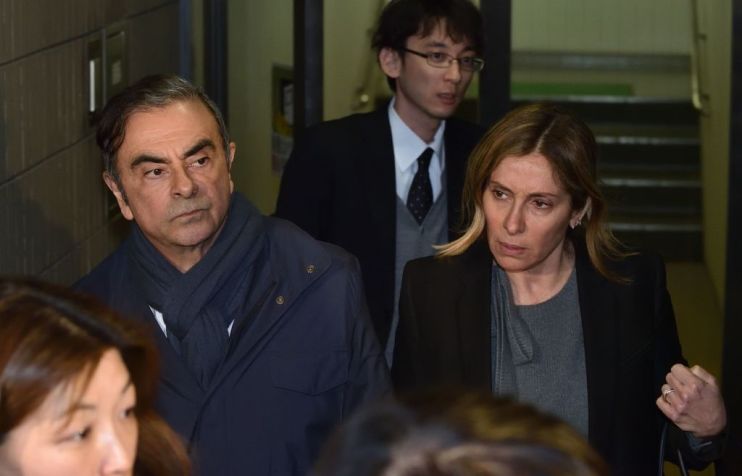Arrest warrant for Carlos Ghosn’s wife issued in Japan

Japanese prosecutors have obtained an arrest warrant for Carole Ghosn, wife of the former Nissan Chairman Carlos Ghosn, for alleged perjury.
Prosecutors said in a statement on Tuesday they had obtained the warrant on suspicion Carole Ghosn had made false statements during testimony to the Tokyo district court in April.
Her husband Carlos fled Japan for his childhood home of Lebanon in late December. He was on bail awaiting trial for charges of financial misconduct, and bail conditions had included restrictions on contact with Carole.
Ghosn became an international fugitive after leaving Japan to escape what he called a “rigged” justice system. He denies any wrongdoing and has said he was the victim of a “conspiracy”.
The former Nissan chairman is expected to offer more details about his escape and accusations about the Japanese justice system during a highly-anticipated press conference tomorrow.
A spokesperson for the Ghosns condemned the issuing of the warrant for Carole’s arrest as “pathetic”.
“Last time Carlos Ghosn announced a press conference and got re-arrested. This time, the day before he is announced to speak out freely for the first time, they issued an arrest warrant for his wife Carole Ghosn,” they told Reuters.
“The issuance of this warrant is pathetic,” they added.
Details of Ghosn’s astonishing escape from Japan have captivated the world, raising questions about how he was able to skip bail despite being under surveillance by Japanese authorities.
Initial reports that he fled the country hidden in a musical instrument case have been dismissed by his wife as “fiction”, and footage has since emerged of him simply walking out of his residence in Tokyo.
Ghosn then took a bullet train Osaka and flew to Beirut via Istanbul using private jets.
Read more: Carlos Ghosn escape: Former Nissan boss ‘took bullet train’ out of Tokyo
A senior official from Japan’s justice ministry said on Tuesday that the country would do its utmost to secure Ghosn’s return, and was examining Lebanese law for potential ways to bring him back.
However, the official said the chances of extraditing Ghosn were extremely low. Lebanon does not usually extradite its own nationals.